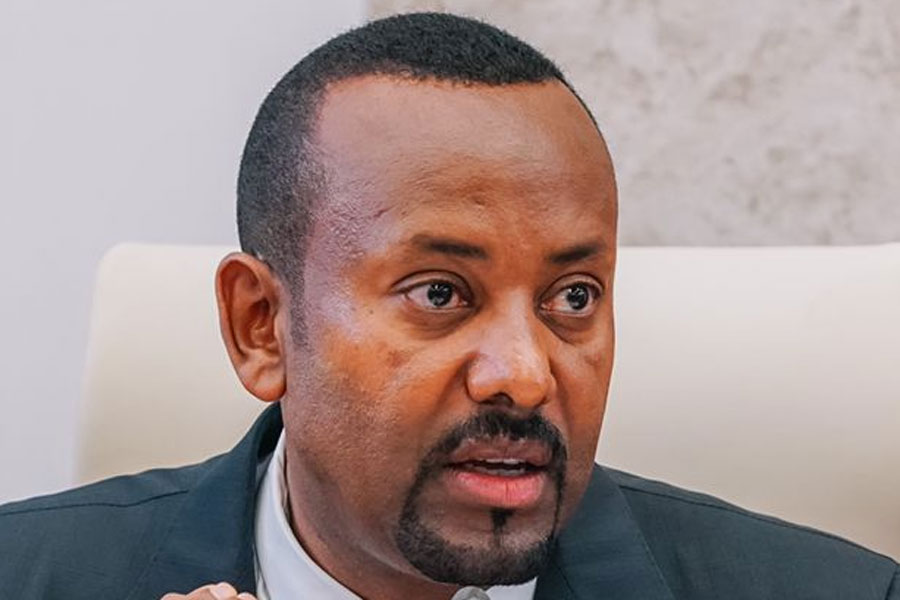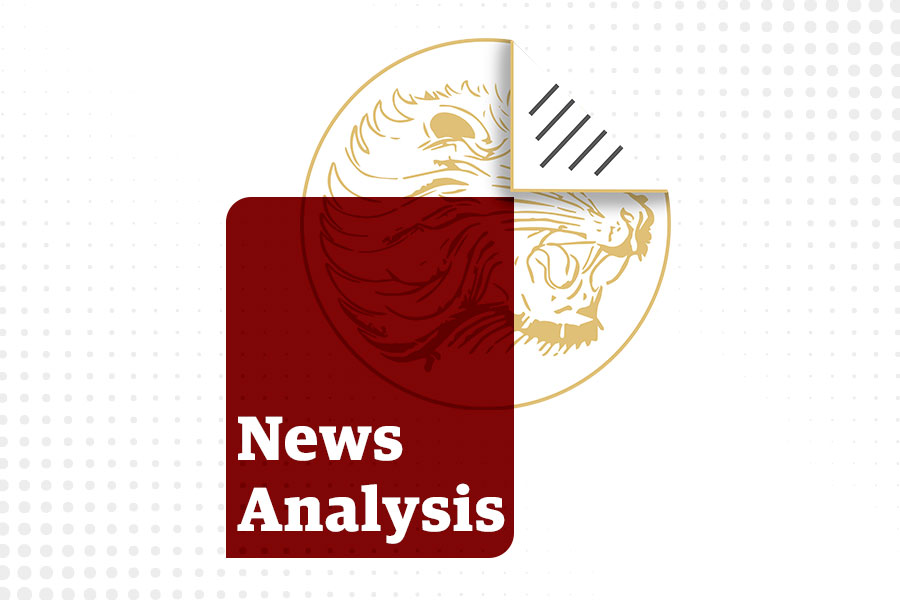
Fortune News | Jun 27,2020
Dec 19 , 2020
By Christian Tesfaye
We are outraged and for a reason. Everywhere we look, we feel that we are being attacked. Our attackers feel outraged too. They believe that they are being attacked by us. They are trying to match us outrage for outrage, anger for anger.
The latest iteration of this in Ethiopia’s political landscape came on the back of the armed conflict between the forces of the Tigray and federal governments. Normalcy seems to be returning to the region, if the partial resumption of communication lines, Prime Minister Abiy Ahmed’s (PhD) visit to Meqelle and the opening of airspace over the region are any indication.
But the outrage over it is in full gear, roaring with new energy and vibrancy by the day.
On the one side of the outrage is the #EndTPLFImpunity camp. They are angry over the attack of the TPLF forces on the Northern Command that was camped in the Tigray region. Look no further for proof of this than an admission by a senior official of the party, they say. Adding to their outrage was the massacre that took place in Mai-Kadra by forces loyal to the TPLF, according to the accounts of witnesses gathered by the likes of Amnesty International. They regard their political opponents, the #StopWarOnTigray camp, as trying to give an organisation they believe tried to hold the stability of the country hostage a free pass, perhaps even save it.
The #StopWarOnTigray camp does not see it this way. Like their political opponents, they believe that they are holier than thou, that their cause is the one that deserves the most deafening outrage. They point to ethnic profiling, which has been reported to the Ethiopian Human Rights Commission, and the cutting of transportation and communication lines (though the federal government insists that the latter is not its doing), as proof of the real target of the military operation – people in the Tigray region. The suffering of refugees, the horrific accounts they are giving to international media outlets, are evidence for this camp that the #EndTPLFImpunity movement will stop at nothing to reach its goal.
Both camps are articulate. They are large and well-organised. They are well connected, and some of them are highly influential. They have even managed to divide Western pundits over their causes. It is nothing short of astounding that there are European and American journalists and academics on both sides of the political divide. Many of them have an embarrassingly limited understanding of the history of the country and the political context of the armed conflict. Thus, they take their talking points from local activists and propagate them to the outside world. They manage to preserve the tone of outrage.
How did we get here? How come we are angry, and why are we unable to be angry about the same thing? How does one injustice trigger us – get us to spout obscenities and slurs – while another barely registers?
There is much to be outraged about, no doubt. Violence answers very few of our problems. We know this. We have seen how it has torn apart families, killed children and displaced millions in the Middle East and close to home in South Sudan. In our country, we have witnessed how it robbed generations of development as it raged for 17 years up to 1991.
Yet, the guns were raised on November 2020 again, for reasons that originate in political differences. We need to be ashamed as a society by this, outraged and angry at our constant failures, at the legacy we are leaving behind.
Unfortunately, we are not outraged together. We are not angry and frustrated at our collective failure. What we are outraged at is one another. We have long stopped engaging; we are talking past each other. We have long preached a politics of tolerance but have practised a politics of 'no mercy' born out of the anger we feel for those that disagree with our views.
In the end, the outrage becomes useless. It is a shouting match, and we are all hoping that the other side burns out.
“There's a level of outrage, then there are people who are outraged about the outrage because it is the wrong type of outrage. Then, you have people who are outraged about that outrage, and then you have another group of people who are outraged because you are not outraged enough,” said Jay Van Bavel, professor at New York University, aptly describing our current state of politics.
By matching outrage for outrage, we will only be leaving everyone deaf. We will be ensuring that our differences could never be settled around a table but through violence.
It is unfortunate that we have concluded that the other side is irredeemable, too biased for us to owe them anything to reach across the aisle.
Let us be clear, we can never persuade the other side, get them to come to the table unless we can be humble and understanding. The more holier than thou we feel - the more contemptuous and smug we are about our opinions - the more we outrage the other side, and the more they outrage us back.
Someone has to be brave, stand up and end this cycle. That would be the true hero.
PUBLISHED ON
Dec 19,2020 [ VOL
21 , NO
1077]


Fortune News | Jun 27,2020

Verbatim | Jan 07,2023

News Analysis | Mar 09,2024

Editorial | Oct 16,2021

Editorial | Aug 14,2021

My Opinion | 131590 Views | Aug 14,2021

My Opinion | 127946 Views | Aug 21,2021

My Opinion | 125921 Views | Sep 10,2021

My Opinion | 123545 Views | Aug 07,2021

Dec 22 , 2024 . By TIZITA SHEWAFERAW
Charged with transforming colossal state-owned enterprises into modern and competitiv...

Aug 18 , 2024 . By AKSAH ITALO
Although predictable Yonas Zerihun's job in the ride-hailing service is not immune to...

Jul 28 , 2024 . By TIZITA SHEWAFERAW
Unhabitual, perhaps too many, Samuel Gebreyohannes, 38, used to occasionally enjoy a couple of beers at breakfast. However, he recently swit...

Jul 13 , 2024 . By AKSAH ITALO
Investors who rely on tractors, trucks, and field vehicles for commuting, transporting commodities, and f...

Jun 28 , 2025
Meseret Damtie, the assertive auditor general, has never been shy about naming names...

Jun 21 , 2025
A well-worn adage says, “Budget is not destiny, but it is direction.” Examining t...

Jun 14 , 2025
Yet again, the Horn of Africa is bracing for trouble. A region already frayed by wars...

Jun 7 , 2025
Few promises shine brighter in Addis Abeba than the pledge of a roof for every family...

Jun 29 , 2025
Addis Abeba's first rains have coincided with a sweeping rise in private school tuition, prompting the city's education...

Jun 29 , 2025 . By BEZAWIT HULUAGER
Central Bank Governor Mamo Mihretu claimed a bold reconfiguration of monetary policy...

Jun 29 , 2025 . By BEZAWIT HULUAGER
The federal government is betting on a sweeping overhaul of the driver licensing regi...

Jun 29 , 2025 . By NAHOM AYELE
Gadaa Bank has listed 1.2 million shares on the Ethiopian Securities Exchange (ESX),...